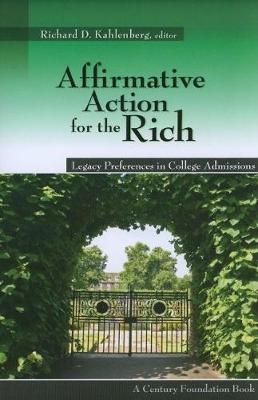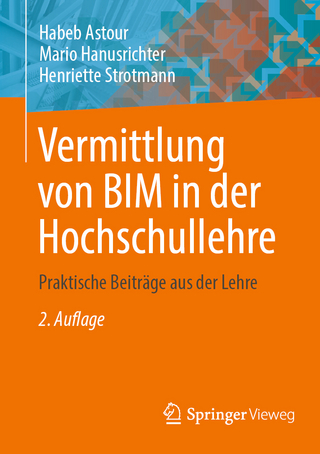
Affirmative Action for the Rich
Legacy Preferences in College Admissions
Seiten
2010
The Century Foundation (Verlag)
978-0-87078-518-4 (ISBN)
The Century Foundation (Verlag)
978-0-87078-518-4 (ISBN)
- Keine Verlagsinformationen verfügbar
- Artikel merken
The use of race-based affirmative action in higher education has given rise to hundreds of books and law review articles, numerous court decisions, and several state initiatives to ban the practice. However, surprisingly little has been said or written or done to challenge a larger, longstanding ""affirmative action"" program that tends to benefit wealthy whites: legacy preferences for the children of alumni.
Affirmative Action for the Rich sketches the origins of legacy preferences, examines the philosophical issues they raise, outlines the extent of their use today, studies their impact on university fundraising, and reviews their implications for civil rights. In addition, the book outlines two new theories challenging the legality of legacy preferences, examines how a judge might review those claims, and assesses public policy options for curtailing alumni preferences.
The book includes chapters by Michael Lind of the New America Foundation; Peter Schmidt of the Chronicle of Higher Education ; former Wall Street Journal reporter Daniel Golden; Chad Coffman of Winnemac Consulting, attorney Tara O'Neil, and student Brian Starr; John Brittain of the University of the District of Columbia Law School and attorney Eric Bloom; Carlton Larson of the University of California —Davis School of Law; attorneys Steve Shadowen and Sozi Tulante; Sixth Circuit Court Judge Boyce F. Martin Jr. and attorney Donya Khalili; and education writer Peter Sacks.
Affirmative Action for the Rich sketches the origins of legacy preferences, examines the philosophical issues they raise, outlines the extent of their use today, studies their impact on university fundraising, and reviews their implications for civil rights. In addition, the book outlines two new theories challenging the legality of legacy preferences, examines how a judge might review those claims, and assesses public policy options for curtailing alumni preferences.
The book includes chapters by Michael Lind of the New America Foundation; Peter Schmidt of the Chronicle of Higher Education ; former Wall Street Journal reporter Daniel Golden; Chad Coffman of Winnemac Consulting, attorney Tara O'Neil, and student Brian Starr; John Brittain of the University of the District of Columbia Law School and attorney Eric Bloom; Carlton Larson of the University of California —Davis School of Law; attorneys Steve Shadowen and Sozi Tulante; Sixth Circuit Court Judge Boyce F. Martin Jr. and attorney Donya Khalili; and education writer Peter Sacks.
Richard D. Kahlenberg is a senior fellow at The Century Foundation, Washington, USA, and the author of Tough Liberal: Albert Shanker and the Battles Over Schools, Unions, Race, and Democracy (Columbia University Press, 2007) and the editor of America's Untapped Resource: Low-Income Students in Higher Education (The Century Foundation Press, 2004).
| Erscheint lt. Verlag | 30.9.2010 |
|---|---|
| Verlagsort | Washington DC |
| Sprache | englisch |
| Themenwelt | Sozialwissenschaften ► Ethnologie |
| Sozialwissenschaften ► Pädagogik ► Erwachsenenbildung | |
| Sozialwissenschaften ► Soziologie | |
| ISBN-10 | 0-87078-518-4 / 0870785184 |
| ISBN-13 | 978-0-87078-518-4 / 9780870785184 |
| Zustand | Neuware |
| Haben Sie eine Frage zum Produkt? |
Mehr entdecken
aus dem Bereich
aus dem Bereich
praktische Beiträge aus der Lehre
Buch | Softcover (2024)
Springer Vieweg (Verlag)
49,99 €
Lernende in ihrem Lernprozess wirksam begleiten und unterstützen. Ein …
Buch | Softcover (2024)
WBV Media (Verlag)
20,00 €
Prüfungsaufgaben - Rechnungswesen, Wirtschaft, Recht, Steuern
Buch | Softcover (2023)
Europa-Lehrmittel (Verlag)
26,90 €


